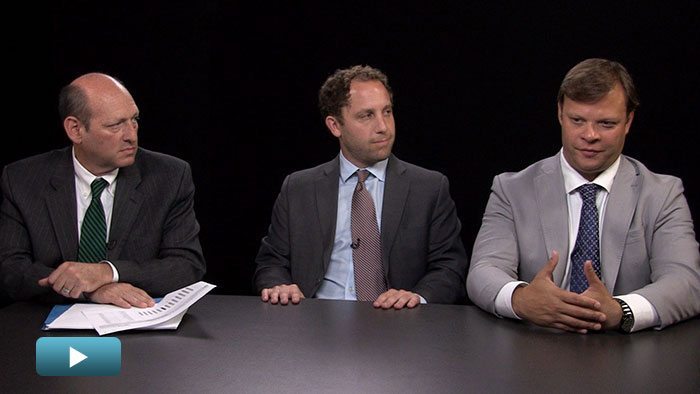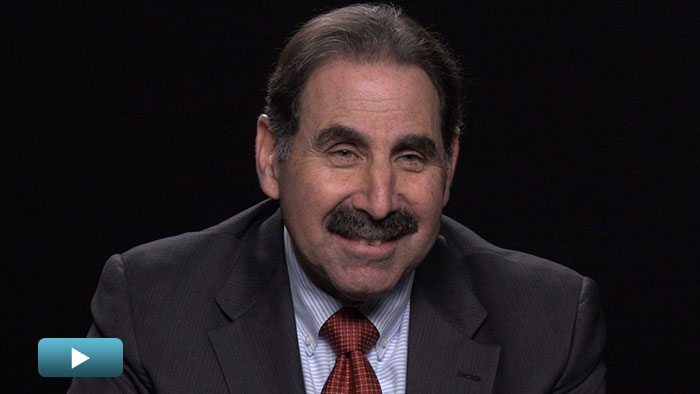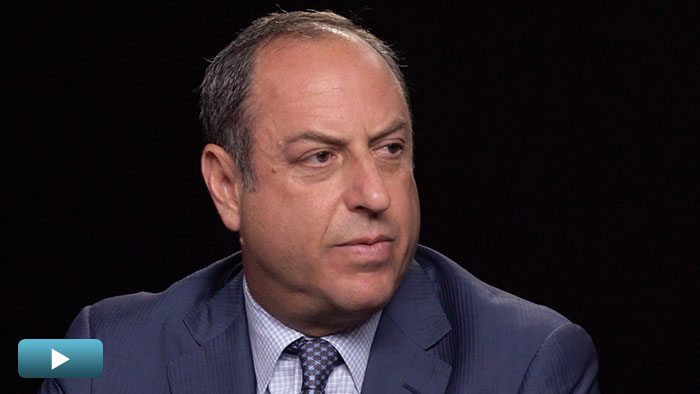Highest Price Doesn’t Always Win the Deal
Joshua Grossman of LEM Capital, Matt Pestronk of Post Brothers, and Jeff Adler of Yardi Matrix discuss the increased need for pre-underwriting of deals; how to get reluctant sellers to dispose of their properties; and how some deals can take 13 years.
Transcript Download Transcript
Highest Price Doesn’t Always Win the Deal
The Art & Science of Multifamily Investing
Zoe Hughes, PrivcapRE: I’m joined here today by Matt Pestronk, President of Post Brothers; Joshua Grossman, Vice President of LEM Capital; and Jeffrey Adler, Vice President of Yardi Matrix. Gentlemen, thank you so much for joining me today.
Competition for U.S. multifamily deals is undoubtedly off the charts, which I think raises a fundamental question for investors and managers alike, which is how do you ensure you’re only spending time on the most relevant deals that you’re likely to win? Matt and Josh, I want to open this up to you first. Give me a sense as to the competition in the market. Is this actually more competitive today than what you’ve perhaps seen in the past?
Joshua Grossman, LEM Capital: There’s no doubt it’s very, very competitive. I think a lot of the people…we work with and some of the value we try and provide is really trying to outwork our competitors, trying to find creative ways to get a hold of deals, trying to do other things other than just pay more than the next guy. Sometimes that’s OK because you believe you take a view on a deal and you think there’s upside that maybe somebody else doesn’t see.
Hughes: Where do you typically source most of your deals from?
Grossman: We have a network of local operators, guys across the country, who know their markets and out. These are people we’ve known and spent time with over the last 36 or 48 months. I mean, we have partners we’ve been doing deals with for 12 years and we typically spend anywhere from 12 to 18 months getting to know an operating partner before we do a deal. We want them to know us and get comfortable with us and the same is true with us. It’s important that they understand the way we look at deals…[and that] we understand the way they look at deals. Ultimately, you want to get to somewhere where, if something goes wrong, you can sit across the table from somebody, keep the documents in the drawer and just figure it out.
Hughes: Matt, how are you really sourcing those deals? Is it exceptionally more competitive today than what you’ve perhaps experienced in the past?
Matthew Pestronk, Post Brothers:
We really operate in a much more limited geography than Josh does, so I would say we can invest in a 200–mile radius of our office, but really, we’re focused on Pennsylvania, New Jersey and New York, to some extent. I will never make an offer on a property if I don’t know every asset in the submarket, who owns it and what their predisposition is to sell to someone else. So I would say that it’s not necessarily more competitive for us because we’re very focused on what we’ve always been focused on. We have a building under contract and calling the guy every other week for 13 years and we finally just get another contract.
The price has gone up by 100% in 13 years, but I would say we’re really focused on sourcing opportunities where the capital intensiveness of the property, whether it’s marketed or not marketed, doesn’t matter. We’ve bought…15 properties or so. We’ve never bought a property once, we bought a property not where there was any broker involved. So the fallacy of off-market deals is it can be a bit of a trap, but at the same time, in some places, some markets, it is very valuable because pricing can get wildly out of control.
Hughes: Because I think the Holy Grail seems to be getting those off-market deals. I have been told by one GP that there is no such thing in multifamily as an off-market deal. Jeff, do you disagree, agree?
Jeffrey Adler, Yardi Matrix: I disagree. You can, if you want to convince yourself that there’s no such thing as an off-market deal. Then, you’re really going to be dependent upon what gets brought to you.
Pestronk: That’s being a quitter.
Adler: The chief investment officers that I talk to…—all at different organizations—are increasingly saying, “I really want to take control of the acquisitions process. I have to improve my response time.” When there is a broker deal, I have to figure out—and the old ratio used to be, quite frankly, and I ran an acquisition team, you have an acquisition team that would look at 100 deals to get one. That’s impressively inefficient and expensive because you’re hiring very expensive talent.
What I increasingly see from chief investment officers is buying a tool, such as ours, that allows them to pre-underwrite just about every deal in a city market to be able to define [whether] these are the assets [they] want. Maybe it’s a deep value-add, a C asset in an A location or these are what we’re willing to pay, based upon this. I’ve basically got a book, or spreadsheet more likely, that has every deal in a city market—what they think fair value is, given, say, the cost of debt and they’re…giving their acquisitions teams, “Here’s what I want you to go buy. Go get it for me.” Or to the brokers.
Hughes: A lot more preliminary, underwriting a lot more, digging down and research—is that what’s happening in your firms as well? Are you having to do more preliminary work, more preliminary due diligence, as it were?
Grossman: We find that…sometimes different sponsors will bring us in the different points in the process and we’re more than happy to spend the time upfront because we view it as a partnership. And if we’ve underwritten a deal, if we’ve seen it, if we’ve…had five conversations with the sponsor, by the time the sponsor gets on the best and final call, often times we’ll do an initial preliminary investment committee review. At that point, the sponsor will get on the phone with the broker because they have gone through all these processes and…I think it provides a seller, whether the deal’s being marketed or not, with the actual level as confidence that the equity has viewed the deal…and provides as close as you can get to certainty of close at that point in the process.
Adler: We’re also finding that the data we have is basically being used in the underwriting process for the debt. They’re actually pre‑underwriting a lot of the loans now because there is a very competitive market as well that they’re putting out debt and it’s not just a price issue. It’s also a response and certainty of close. I think these conditions are requiring people (1) to improve their response time and (2) to make sure they don’t buy something they didn’t really intend to buy at the price they didn’t intend to buy that, which is always a question of discipline.
Hughes: What do you want as a seller as well? Are you giving over any time for due diligence? Are you seeing it really squeezed?
Pestronk: If you really want a perfected price on a core asset, I can talk about this because we’re selling a core asset. As a buyer, I operate very differently than the person who buys my property would.
As a buyer, when I sign a contract, I go non‑refundable and that’s how I get the deals I get. No one buys core assets that way, really. Outside of a few major markets, it’s very challenging. When people talk about investment committee, you have to accept that as a fact of life if you want a very aggressive cap rate for your properties. But when we’re a buyer, I am the investment committee. So, we go, we look, we underwrite and we sign a contract. It’s very different.
Hughes: And how long is your typical close—has it been squeezed?
Pestronk: People don’t care about how long it takes to close and they have 1,031 considerations.
Adler: Well, if you’ve gone hard, you’ve put your money where your mouth is.
Pestronk: We have 10 to 20 days to go hard, typically, from when we learn about a deal or at least to get the contract closed. Yeah.
Adler: I think that’s the relevant timeframe. When are you going to get serious and put money down?
Pestronk: If we go look at a property, we order third parties that day. We have all of our due diligence. We would really need to close, done, 15 or 20 days. We can do it in 10, but I think that due–diligence periods for properties that…need to be substantially repositioned in some way are quickly going away…or they’re going away in certain places. I can only speak to the markets we operate in and, right now, with what we’re selling, we have an expectation that the buyer is going to need some due–diligence period. But, as a buyer, it’s just not realistic to expect one.
Hughes: Josh, what are your timeframes like? Is it becoming much more squeezed when you’re actually doing your acquisitions?
Grossman: We are. We’re finding that some of our sponsors are having to win deals on terms, just to give you the right to pay the same price as the next guy or the same price as three other people, more likely. We’re finding due–diligence terms and periods are really 15 days to 30 days, maybe down to 10 if there’s a specific backstory and context. But…like Jeff was saying, the length of the due–diligence period is really getting squeezed. Once you have substantial money hard, sellers are comfortable and they’re OK with that 30-day or 45-day close because people are realistically understanding. You have to get financing lined up and the banks just have to work through their process.
Adler: But I would say that the main issue is…you want to do as much work as you possibly can so that you are going after the deals you want to go after and you have an idea of what you’re willing to pay, which might be refined, based on the last thing you find out, but you’re being proactive. You’re driving it. Or, if you are getting broker–marketed deals, you could quickly separate the wheat from the chaff and not waste your time on stuff that doesn’t fit and not spin your wheels. [You can] just focus on the things that work for you, for your investment strategy, and bore in and then be able to bring something significant to the table in terms of a better term, some other play.
Hughes: Can you actually be more proactive for those sellers who are not sellers yet?
Pestronk: That’s how you get those owners to sell.
Hughes: I mean, you said that one deal took 13 years.
Pestronk: A huge amount of real estate is in the hands of entrepreneurial owners (or they were entrepreneurs and now they’re rich entrepreneurs) that—their kids want to [do] something else, write movies or something, and they don’t want this $400–million unleveraged real estate portfolio that might be available to them. It’s just when Dad says, “You know what, capital gains taxes might go up. I’m done. Let’s sell.”
You have to stay on top of those people because, when they decide, there’s a very narrow window. So the opportunity or the trick is convincing them to sell and getting them under contract, because then you just lose the window in which you’re…the only person, if the broker tells you, or maybe one of two.
Adler: I think that’s the whole point of being able to identify the assets you want and to have a large enough pipeline that, again, Matt’s a little different than most organizations that have an acquisition team that might be either be centrally or geographically dispersed. And you have a chief investment officer saying, “How am I going to manage my deal pipeline where I have a non-trade agreement where they’re getting cash in every month and they have to put that money out?”
They have a pipeline they absolutely have to manage and get in front of. And they have to do it wisely. Well, they’re using these pre-underwriting tools to basically say, “Here’s the list. Go get them.” I need a big enough pipeline. So you say it may take two years, five years or 10 years to get a private owner into the market just at the right time.
In other places, it really is having enough of a deal pipeline to be able to keep—let’s say you have a programmatic JV, which a lot of organizations do it for a sponsor. You’ve got a programmatic JV and your capital is asking you what is your deal pipeline? Where is it? They have money that they have to put out to the pension funds in order to get a return. So, again, you want to make wise deals. You want to make accretive deals that make sense and work. How are you building your pipeline? Are you waiting for it to come to you or are you going out and finding it?
Hughes: When you are obviously dealing with operating partners and JV partners, are you also having to share a bit more of the upside with them? Josh, give me a few dynamics. Have things changed a bit? Are you having to share a bit more in terms of economics?
Grossman: We have different sponsors that look for different things. Some people are focused on current cash flow. Some are focused on maximizing back end. Some people want to invest 15% of capital. Some want to put up 50% of capital. It all depends. We try and be flexible and find that structure that allows us to achieve our objectives, both from a cash flow multiple and IRR perspective and for our sponsors to achieve whatever their specific set of objectives are.
Hughes: When we talk about off-market deals, are sellers leaving price on the table or are you not really?
Grossman: I think it depends on the specific set of circumstances. Sometimes there will be a specific seller who has an issue, whether it’s estate planning or a tax issue or the property or the loan’s maturing. And maybe in that instance, but I think, like we’ve talked about the off-market deals are very rare.
Hughes: I know ease of execution has been repeatedly cited to me as critical. What exactly do we mean by that?
Adler: Having been on both sides of the transactions, and I think these other guys have been as well, it’s a package, right? It’s a package. I think most people would say it’s more important to make sure a deal’s going to get done once you’ve walked in the path that you’re going to do a deal because, if you don’t execute, you’ve got damaged goods and the value of the property will go down just because, aha! They couldn’t close, OK? So, certainty of close is a very big deal.
Obviously, you want to go as high as you can on the price side, but if you look to get the very last nickel in the deal and you picked a buyer that can’t close, you just blew yourself up. I do think it’s a package of terms, conditions, how much the money is hard—
Pestronk: —We’ve done that as a seller and the buyer didn’t perform. It was a big mistake.
Adler: It’s a big mistake because then the value of the property is impaired now.
Hughes: Josh, have you actually won a deal where you weren’t the highest bidder?
Grossman: Absolutely. A lot of these marketed deals—I think…the examples you guys are both giving. I think the first group steps up with just an outlier bid. The seller tries to hit it and that guy can’t get his capital lined up. Then, we’re sitting there at third with somebody we’ve done four deals with. We’ve got a very conservative underwriting. We’ve pre-negotiated a term sheet, a set up JV docs or they’re already existing because we’ve done so many deals together and the broker just doesn’t want to take a chance with maybe a questionable second bidder. [They] would rather go to…just a more solid third group with a group in third place with a good reputation, ready capital and proven that they’ve already gone down the path of due diligence.





